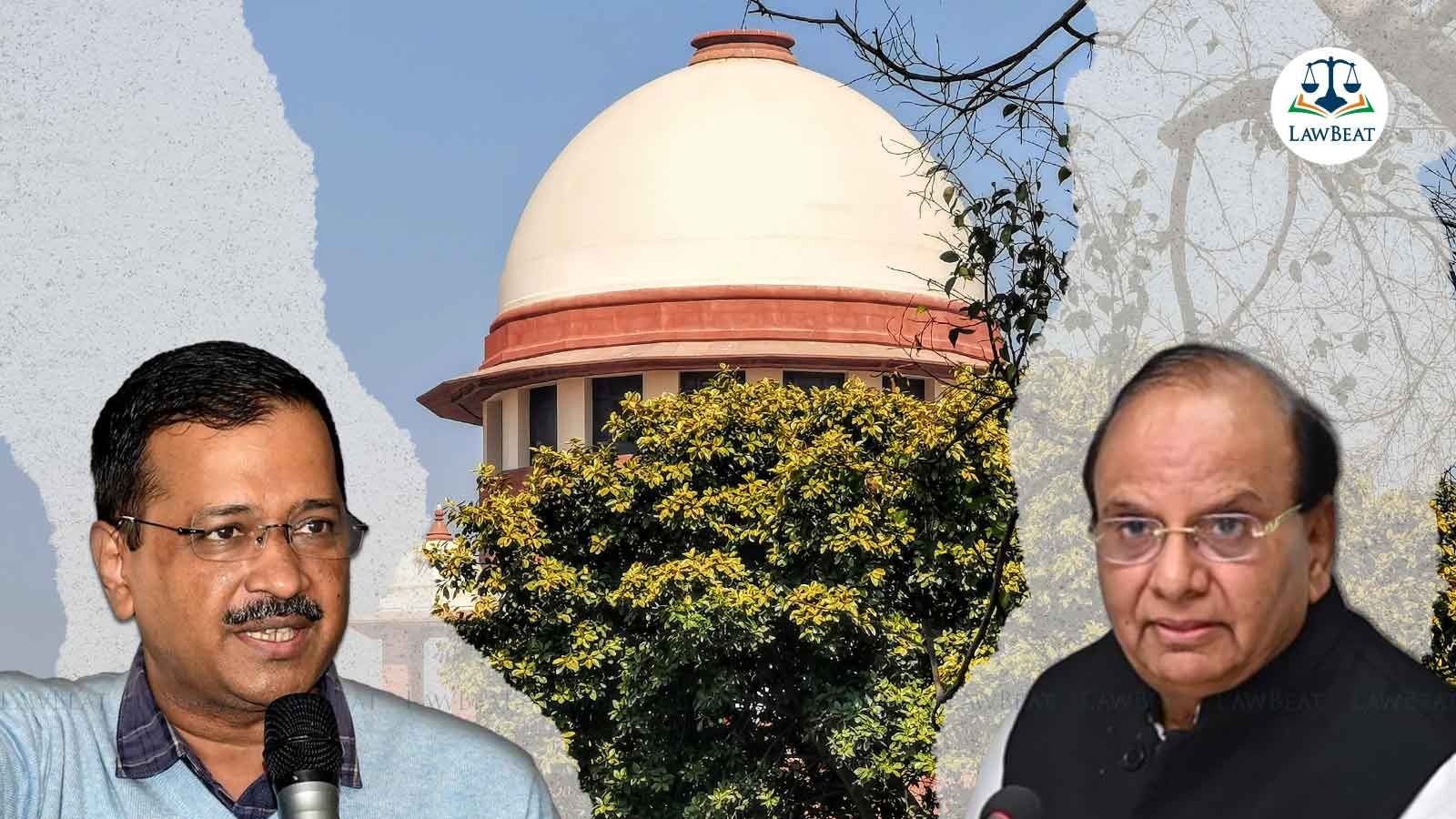Challenge to GNCTD (Amendment) Ordinance 2023: Supreme Court expresses inclination to refer plea to Constitution Bench

The Delhi government has claimed that the Ordinance shows contempt for elected assembly and elected government while making a pretense of their involvement through the Chief Minister.
The Supreme Court today deliberated on its inclination to refer to a 5-judge Constitution bench the Delhi Government's plea challenging the Government of National Capital Territory of Delhi (Amendment) Ordinance 2023 which "wrested" control over civil servants from the Delhi government to the Lieutenant Governor.
A bench comprising Chief Justice of India DY Chandrachud, Justice PS Narasimha and Justice Manoj Misra observed that the issue whether the powers under Article 239AA(7)(a) of the Constitution could be invoked to make the law of the instant nature was not considered in its recent Constitution Bench.
Delhi government's counsel, Senior Advocate AM Singhvi objected to this and said, "Let me show why this should not be referred to a constitution bench. Let me give a one pager on Thursday, it will just take ten minutes.."
Notably, the Centre has informed the Supreme Court that the impugned Ordinance, which is yet to be tested in the Parliament, if stayed, will cause an irreparable harm to the administration of GNCTD.
"It is submitted that no interference by this Hon’ble Court is warranted against the impugned Ordinance at the behest of the Petitioner, in view of the legal position to the effect that Article 239AA(3)(b) of the Constitution, expressly provides that nothing in clause (a) shall derogate the powers of the Parliament under this Constitution to make laws with respect to any matter for a Union territory or any part thereof...", Centre has added.
Last week, the Supreme Court had refused to grant interim stay on the Ordinance which "wrested" control over civil servants serving in the Government of NCT of Delhi from the Delhi government and "vested it to the unelected Lieutenant Governor".
While the bench issued notice on the plea, it said that it would hear the interim prayers for stay today and asked for the Centre's response to the same.
Recently, the Supreme Court had agreed to hear the Delhi government's writ petition challenging the constitutionality of the Ordinance after Senior Advocate AM Singhvi had mentioned the same.
The AAP government claimed that the Ordinance is an unconstitutional exercise of executive fiat, which violated the scheme of federal, democratic governance entrenched for the NCTD in Article 239AA. It also contended that the Ordinance legislatively overruled a Constitution Bench judgement of the Supreme Court passed on May 11, 2023.
The NCT government also stated that the Ordinance is manifestly arbitrary, and is an impermissible and unconstitutional abuse of Ordinance making powers under Article 123 of the Constitution.
The Ordinance overruled the Constitution bench judgement without "altering its basis, which was that accountability of civil servants to the elected arm of the government, and the elected government’s control over the civil service, is a substantive mandate of the model of governance envisaged by the Constitution, including for the NCT of Delhi under Article 239AA", the plea stated.
On May 11, a five-judge constitution bench of the Supreme Court held that it is ideal to hold that a democratically elected Delhi government should have control over its officers and the LG is bound by the advice of the elected government, except in matters of public order, police, and land. It had also said that if the government is not able to control and hold to account the officers posted in its service, then its responsibility towards the legislature as well as the public is diluted.
On May 19, the Centre, however, promulgated the Ordinance setting up a permanent authority known as the National Capital Civil Service Authority, with Delhi chief minister as its chairman along with chief secretary, Delhi, Principal Secretary (Home), Delhi to make recommendations to the Delhi LG regarding matters concerning transfer posting, vigilance and other incidental matters. However, in case of difference of opinion, the decision of the LG shall be final.
Questioning the validity of the move, the Delhi government contended that the Ordinance destroyed the scheme of federal, Westminster-style democratic governance that is constitutionally guaranteed for NCTD in Article 239AA, a sui generis provision incorporated to fulfill the popular, regional, and democratic aspirations of the people of Delhi.
It is to be noted that on May 20, the Centre had filed a review petition in the Supreme Court against May 11 judgment.
The AAP government, in its plea, also said, "The Ordinance clearly seeks to revert the situation to what the 2015 Notification had sought to install, in complete disregard for this Court’s authoritative view. Though the impugned Ordinance feigns a degree of democratic involvement by making stray references to the Chief Minister, it in fact relegates the Chief Minister to being a minority-voice even in the Authority tasked with making nonbinding ‘recommendations’".
Case Title: GNCTD vs. UoI
